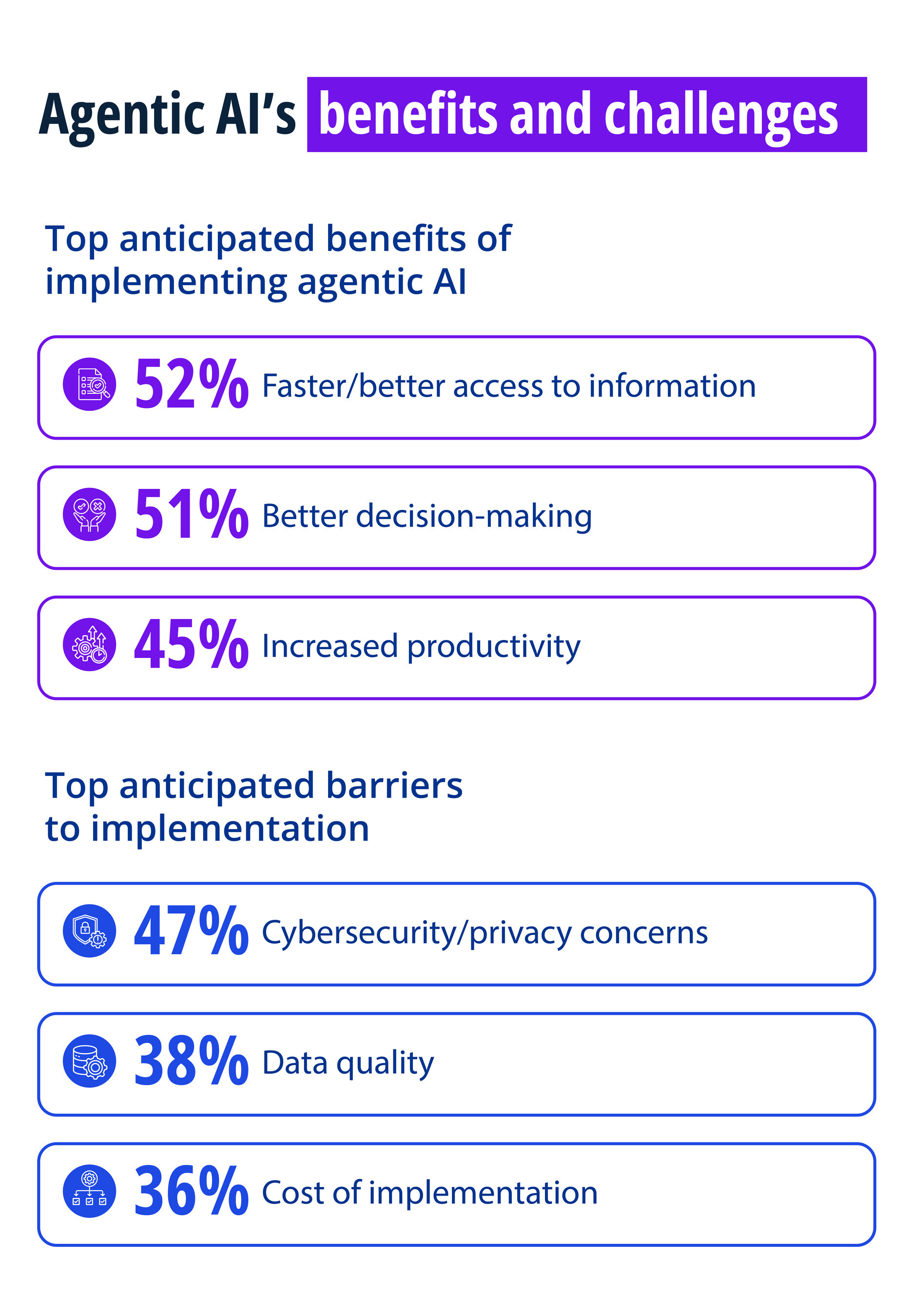Source: hcamag.com
9 in 10 companies using or laying groundwork for use of technology, finds report
Less than three years after the debut of the generative artificial intelligence (GenAI) tool ChatGPT, most employers appear ready to embrace the next evolution of AI, according to a recent study from KPMG.
More than 9 in 10 (91%) Canadian employers are taking steps toward this shift. Specifically, 27% have already implemented agentic AI in their organization, while 64% are exploring use cases, actively experimenting, or running pilot projects.
Nearly 6 in 10 (57%) plan to invest in or adopt agentic AI within the next six months, and 34% within the next 12 months.
Agentic AI ‘transformative’
Agentic AI systems operate autonomously, using tools such as large language models to make decisions and execute tasks with minimal or no human intervention, KPMG notes. These AI agents can handle a wide range of responsibilities independently, including responding to customer inquiries, placing and tracking orders, building lead generation lists, and managing refunds.
“Agentic AI is a nascent technology, but it’s the most transformative AI we’ve ever seen in human history to date,” says Stephanie Terrill, Canadian managing partner for digital and transformation at KPMG in Canada.
“We are already seeing humans work alongside agents as organizations use the technology to fill critical skills gaps, boost productivity and efficiency. Using AI agents for repetitive tasks allows an organization to re-focus their workforce on the more critical work, such as strategy and innovation.”
“Agents” is “the next level of maturation or evolution of the digital assistants,” says Keith Bigelow, chief product officer at Visier, in talking with Canadian HR Reporter.
How are companies going to use agentic AI?
KPMG’s survey of 252 business leaders – conducted Feb. 28 to March 5, 2025 – reveals that the companies believe the following are the top uses of agentic AI:
 And while many anticipate it will bring a lot of positives, Canadian employers also cite a few barriers to agentic AI implementation.
And while many anticipate it will bring a lot of positives, Canadian employers also cite a few barriers to agentic AI implementation.

Nearly 9 in 10 (86%) say agentic AI is a top investment priority for their organization, and 88% agree that adopting the technology will help my organization be more competitive, with 58% agreeing strongly.
“Standalone AI agents can help businesses automate tasks in a certain area, but organizations can yield more value from agentic AI by incorporating the technology across software applications,” says Gary Filan, KPMG’s AI lead in Canada.
“Integrated agents that can coordinate tasks across various workflows and business functions will help companies move beyond simple task automation to more dynamic business processes and workflows; that’s a major shift that can boost productivity and profitability significantly,” he says.
Knowledge gap around agentic AI
However, there is a knowledge gap when it comes to agentic AI, according to KPMG:
- 72% of Canadian employers say they are very familiar with the concept of agentic AI and 25% were somewhat familiar
- 66% say they are very familiar with agentic AI’s potential applications in their organisation or industry and 31% were somewhat familiar
“Awareness, education and real-life experimentation can help close that gap,” says Terrill. “We expect awareness of agentic AI to grow rapidly in the months ahead, and more Canadian organizations will continue to experiment with and invest in the technology – perhaps even more so than generative AI.”
Half of Canadian employers think workers are not prepared to use GenAI, according to a previous Deloitte report.
How will agentic AI affect employers?
Sunil R., digital business and technology consultant at IT firm Cognizant, says that adopting agentic AI and other automation tools will require employers to reassess the way they do business.
“Treating agentic AI and robots like a true ‘employee’ means rethinking everything—from physical location and external partnerships to established processes. This shift requires new governance frameworks, revamped human-AI collaboration models, investment in digital and computing infrastructure, and flexible training and capacity management systems.”
In the wake of widespread interest in agentic AI, experts are giving assurance that this developing technology will not replace the workforce anytime soon, according to a previous report.



